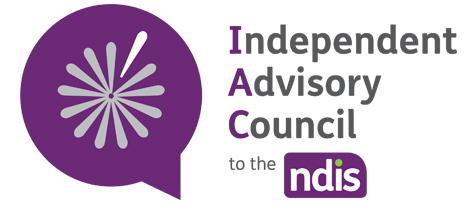Strengthening Scheme reforms to access and planning
This report shares feedback from engagement with the disability community on reforms to the NDIS, including independent assessments. It gives recommendations to the National Disability Insurance Agency (NDIA) Board and Minister for the NDIS.
The Independent Advisory Council (IAC) wrote this advice. When we say we, mean the IAC.
Our recommendations
We recommend that the NDIA:
Do not go ahead with independent assessments in the current form. They should co-design how independent assessments will work with the IAC and representatives of Disability Support Organisations instead.
Share draft legislative changes with the public early on, so they have time to give feedback.
Make sure independent assessments align with the NDIS Act 2013.
Co-design the independent assessment toolkit and processes with the disability community.
On independent assessments, we recommend that:
Assessments are simple and easy to understand
Assessors are a good match for the participant
People with disability and family members train and advise assessors, because they are experts in disability.
Participants, family members and carers are recognised as a primary source of information.
The NDIA co-design how independent assessment will work for participants’ moving from institutions.
Appropriate pre-existing information is shared with assessors.
Participants can review their assessment before it is finalised, and make complaints or corrections.
On contracts with organisations doing independent assessments, we recommend that:
Contract terms for engaging independent assessors include a clear rule on their skills, experience, data collection and hiring of people with disability.
Reporting is transparent.
The amount of time for assessment is flexible.
There are no performance indicators for reducing or denying access to the NDIS.
Contracts always support face to face assessments.
Aboriginal Community Controlled Health organisations should be considered to do assessments in remote areas.
Representatives from Disabled Person’s Organisations co-design training for assessment organisations.
On the Personalised Budget Model (PBM), we recommend that:
The NDIA should not develop the PBM until the community and government agree about assessments.
The NDIA consider co-design, transparency, participants’ needs and the sustainability of the NDIS when developing the PBM.
Independent assessments and PBM are delivered in easy English, plain English, Auslan and/or video.
The process makes sure there is a plan to support those participant's whose plans are reduced or leave the NDIS.
Other IAC recommendations:
The NDIA should finalise the support for decision making policy before starting independent assessments.
The NDIA should also revise the Local Area Coordinator (LAC) strategy.
The NDIA should use more evidence-based supports and flexible budgets.
Work should be done to address gaps in the NDIS market and workforce.
The NDIS Quality and Safeguards Commission (NDIS Commission) should do more work with participants and share more information on what services need to look like.
The NDIS Commission should confirm that evidence-based models are being used and make sure providers are accountable for participant outcomes.
What we found in our research
The community has lost trust in the NDIS because of unfulfilled commitments, lack of communication and inconsistent policy and guidelines. The IAC believes making changes using co-design will help build the trust of the disability community.
The disability community wants to work in partnership with the NDIA on Scheme reforms and sustainability. The IAC found that the NDIA needs to think about how they consider a participant’s location and cultural and disability needs. The NDIA has a leadership role in advancing human rights and it should act as a model citizen.
IAC Members and their networks raised concerns about planning processes and the ability of NDIA staff and partners to help participants get the best plan. They want to see more emphasis on inclusion and opportunities for participants to build their skills.
IAC Members raised that State and Commonwealth governments tend to ‘pass the buck’. This means there are gaps in services outside the NDIS. Information Linkages and Capacity Building (ILC) programs are often considered a failure by the disability community. This is because there has been no clear strategy for ILC, and most funding has gone to LAC services. There continues to be a need for greater access to support coordinators.
The IAC wants the NDIA and Disability Reform Ministerial Council to talk about the budget for the NDIS and what the NDIS needs from all states and territories to work well.
